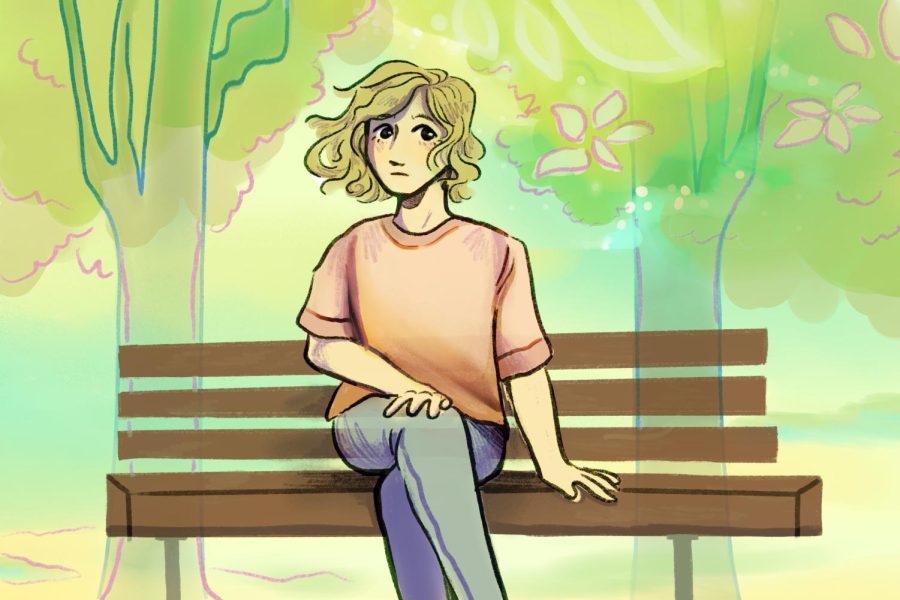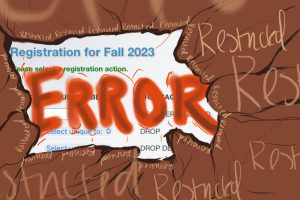Social media aestheticizes mental health disorders
April 18, 2023
Content warning: This column contains discussion of mental illness.
A perfectly-posed BeReal. A funny tweet about depression. A TikTok day-in-the-life. No matter the app, social media users are often exposed to beautified versions of strangers’ imperfect lives.
Certainly, discussing mental health on the internet through campaigns and casual content has increased awareness around these issues. However, social media also romanticizes mental health disorders and actively pushes away severely affected individuals. There is a fine line between communities destigmatizing the struggles of mental illness and glorifying them — a distinction many digital forums fail to acknowledge.
Condensing emotional health into a rosy social media post is just as disingenuous as ignoring those struggles entirely. Because social media is a game of comparison, we often only share the good aspects of our lives. However, mental health disorders cannot be fully encapsulated by aesthetic posts.
“Social media makes it hard to avoid comparing against other people. … Social media can really push that in front of you, whether you’re looking for it or not,” said Michael Mackert, the director of the Center for Health Communication.
This comparative culture can cause those at the beginning of their mental health journey to feel unseen. Discussing mental health is hard. We all have different experiences and education levels on the subject, making it even harder to navigate an internet culture that oversimplifies disorders.
“There’s a trend of making mental illness a trend. It’s a trend to be like to say things like ‘Oh, I’m gonna go off myself’ or saying (you’re) depressed when you’re not actually depressed,” said public health sophomore Chandni Bhagtaney. “So I think there is a culture of using (mental health terms) in an incorrect way and I think that is really unhealthy for people who are struggling with the same mental illnesses, for whom those words mean different things.”
By implying mental health labels affect everyone equally, we dismiss the severity of these disorders.
“I think it makes it harder for the people in their life to maybe take them as seriously when they want to go to them for help,” Bhagtaney said. “And so that makes it probably causes somebody with their own struggles to be like what I’m going through is not that bad either. It also makes it harder to reach out for help because they feel like people aren’t going to take it seriously.”
A lack of standardized digital mental health terminology makes it difficult to understand mental health and reduce its stigma. Such vagueness also increases confusion around treatments or habits people can incorporate into their lifestyles to ease the overwhelming pressures associated with these disorders.
While social media often oversimplifies mental health disorders, creating the perception that problems have quick fixes, achieving better mental health may require confronting what you’ve avoided.
Posting about emotional crises can be an excuse for individuals to indulge in unhealthy behaviors that actually hurt them long-term. Creators may feel pressured to open up about their mental health just to gain followers online.
“With the romanticization of mental (illness) comes this incentive to talk about mental health in a negative light in order to get views — so essentially clickbait,” said Ramya Nambala, a business freshman and YouTube content creator. “A creator could focus disproportionately on their negative mental health.”
Discussions about mental health require a level of sensitivity and awareness of the potential impact words and images have on others. To increase inclusivity around social media mental health discussions, we must be cognisant of others’ mental health experiences and journeys. It’s also important to use deliberate terminology and avoid diminishing others’ struggles.
Furthermore, mental health content is accessible to individuals outside of intended audiences, so conversations must be constructive to improve overall social outcomes and destigmatize mental health.
If you are struggling with depression or other mental health issues, it’s important to seek out professional help. Hiding behind aestheticized representations of mental illness online is a futile effort that replaces substantive action with a crutch.
Hosseini is an international relations freshman from Sugar Land, Texas. Muthukrishnan is a government and race, indigeneity and migration freshman from Los Gatos, California.















